Keep yourself protected with our list of the best security suites
With more malware lurking in the shadows than ever before, it’s critical that you keep yourself safe


If you buy Kaspersky Internet Security from the company’s website, you’ll pay £45 for a one-year, three-device licence – but the publisher allows retailers to apply deep discounts, and if you skip over to our sister title PC Pro’s store, you’ll find the same package for just £20. That’s a tempting price for a security suite that goes far beyond real-time malware protection.
Some of the extra features are familiar. The Safe Money browser does the same job as any other secure browser, although the green border helps ensure that you don’t get your windows mixed up, and we also like the way it can be set to spring up only when you arrive at a site that processes financial transactions.
More innovative features include the Network Monitor tool, which is really a firewall in disguise: you can see which processes are accessing the internet or your local network, and create rules to block anything that doesn’t look kosher. The Application Control feature lets you set granular permissions for every program’s access to system files, services, Registry branches and so on, as well as its ability to read and change Windows settings. It’s the most advanced process inspection and management tool we’ve seen in any security product – power users will love it.
That’s not to say Kaspersky is only for techies. The program’s Trusted Applications mode locks down Windows so only programs that have been positively validated by Kaspersky as safe can be opened – perfect for a kid’s PC, or for a less technically-able user.
There’s also a fair set of PC maintenance tools to hand, including a smart clean-up tool that highlights rarely used applications and blocks third-party installers from sneaking unwanted bundleware onto your system. It’s complemented by a scanner that finds non-standard Windows settings that might have been changed without your knowledge, an automatic application updater and a history cleaner. These functions are a bit extra to the core role of an internet security suite, but it’s great to see them all included in the price, as other publishers tend to push such things as paid-for extras.
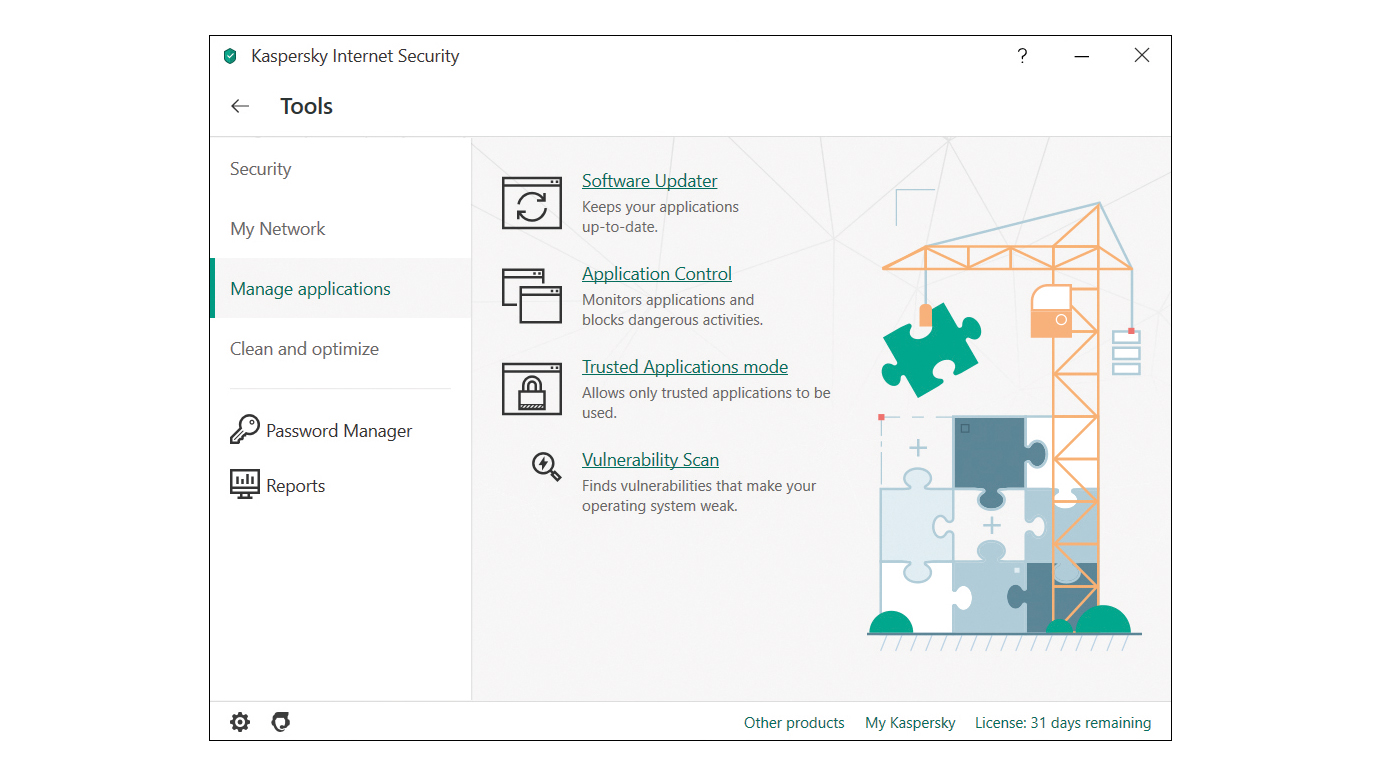
There are a few parts of Kaspersky Internet Security that you do have to pay to fully unlock. One is the Safe Kids parental control module – but it makes a degree of sense to separate these functions out as not everyone needs them. Indeed, parents may find that the basic free functions suffice, letting them enforce safe searching, category-based website blocking and time limits. Only if you want to add location tracking and social media monitoring do you need to cough up for the full edition, which costs £15 a year for any number of children.
Another restricted feature is the Kaspersky Secure Connect VPN. Like Bitdefender’s VPN, this is operated by Hotspot Shield, and it comes with the same limitations: you can’t choose the location of your exit node, and you can only transfer 200MB of data each day. To gain access to the full set of servers and unlimited data, you’ll have to pay an extra £50 a year for up to five devices, which is higher than Bitdefender’s £38. Keep an eye out for discounts, though, as at the time of writing the price has been slashed to just £20.
Sign up today and you will receive a free copy of our Future Focus 2025 report - the leading guidance on AI, cybersecurity and other IT challenges as per 700+ senior executives
Finally, Kaspersky Internet Security invites you to download the company’s free, cross-platform password manager: the catch here is that it’ll only store passwords for up to 15 sites. The unlimited version costs £10.49 a year: we suggest you skip it and use a tool like LastPass instead.
With all these features crammed in, finding your way around can be confusing. While the six big buttons of the main interface look invitingly simple, many components are hidden behind the “More Tools” button, beyond which you’ll find a proliferation of tabs, panes, links and free-floating windows.
Also note that, in the latest independent malware tests, Kaspersky fell just a little short of greatness. Historically it’s always been a strong performer, and its overall protection score of 99.6% isn’t disgraceful, but against fierce competition, it ranks below average. On the plus side, it was the only suite we’ve tested recently to achieve a perfect score in the false positive tests.
Kaspersky also had nearly the lightest touch of any security product we looked at, with an excellent performance rating of 96.8%. In the current climate you might be reluctant to entrust your online safety to a company based in Russia – but we’ve no reason to doubt Kaspersky’s good faith, and it delivers a superb breadth of protection at a terrifically affordable price.
Darien began his IT career in the 1990s as a systems engineer, later becoming an IT project manager. His formative experiences included upgrading a major multinational from token-ring networking to Ethernet, and migrating a travelling sales force from Windows 3.1 to Windows 95.
He subsequently spent some years acting as a one-man IT department for a small publishing company, before moving into journalism himself. He is now a regular contributor to IT Pro, specialising in networking and security, and serves as associate editor of PC Pro magazine with particular responsibility for business reviews and features.
You can email Darien at darien@pcpro.co.uk, or follow him on Twitter at @dariengs.
-
 Will autonomous robotics leap forward in 2026?
Will autonomous robotics leap forward in 2026?In-depth Connectivity and cost benefits remain barriers, despite breakthroughs in physical AI
-
 AWS and NTT Data team up to drive legacy IT modernization in Europe
AWS and NTT Data team up to drive legacy IT modernization in EuropeNews Partnership between AWS and NTT DATA aims to boost AWS European Sovereign Cloud capabilities
-
 Blackpoint Cyber and NinjaOne partner to bolster MSP cybersecurity
Blackpoint Cyber and NinjaOne partner to bolster MSP cybersecurityNews The collaboration combines Blackpoint Cyber’s MDR expertise with NinjaOne’s automated endpoint management platform
-
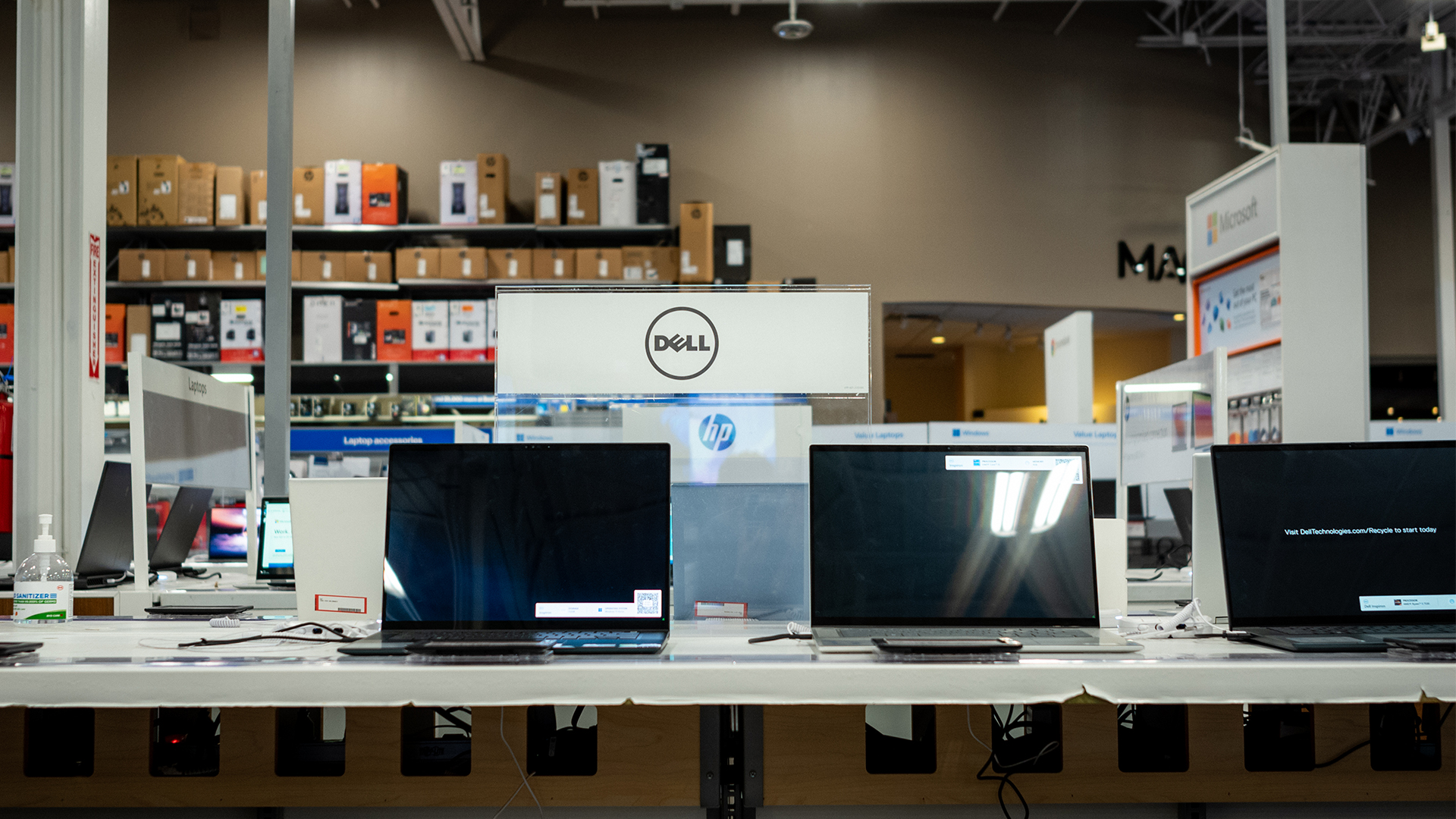 Millions of Dell laptops are are at risk thanks to a Broadcom chip vulnerability – and more than 100 device models are impacted
Millions of Dell laptops are are at risk thanks to a Broadcom chip vulnerability – and more than 100 device models are impactedNews Widely used in high-security environments, the PCs are vulnerable to attacks allowing the theft of sensitive data
-
 ‘A huge national security risk’: Thousands of government laptops, tablets, and phones are missing and nowhere to be found
‘A huge national security risk’: Thousands of government laptops, tablets, and phones are missing and nowhere to be foundNews A freedom of information disclosure shows more than 2,000 government-issued phones, tablets, and laptops have been lost or stolen, prompting huge cybersecurity concerns.
-
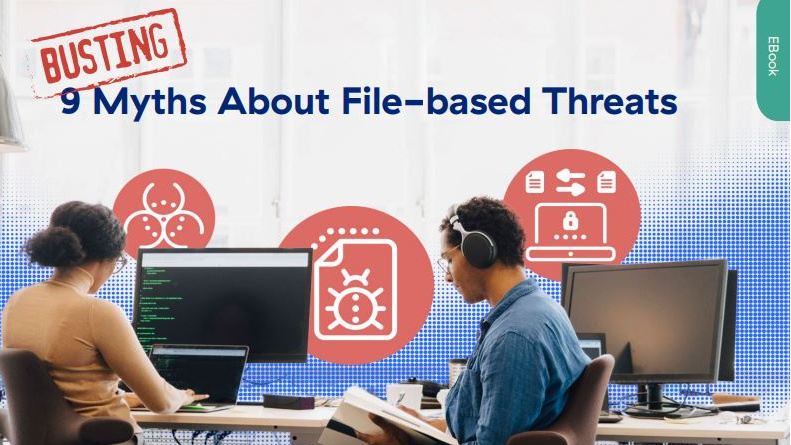 Busting nine myths about file-based threats
Busting nine myths about file-based threatsWhitepaper Distinguish the difference between fact and fiction when it comes to preventing file-based threats
-
 The Total Economic Impact™ of the Intel vPro® Platform as an endpoint standard
The Total Economic Impact™ of the Intel vPro® Platform as an endpoint standardWhitepaper Cost savings and business benefits enabled by the Intel vPro® Platform as an endpotnt standard
-
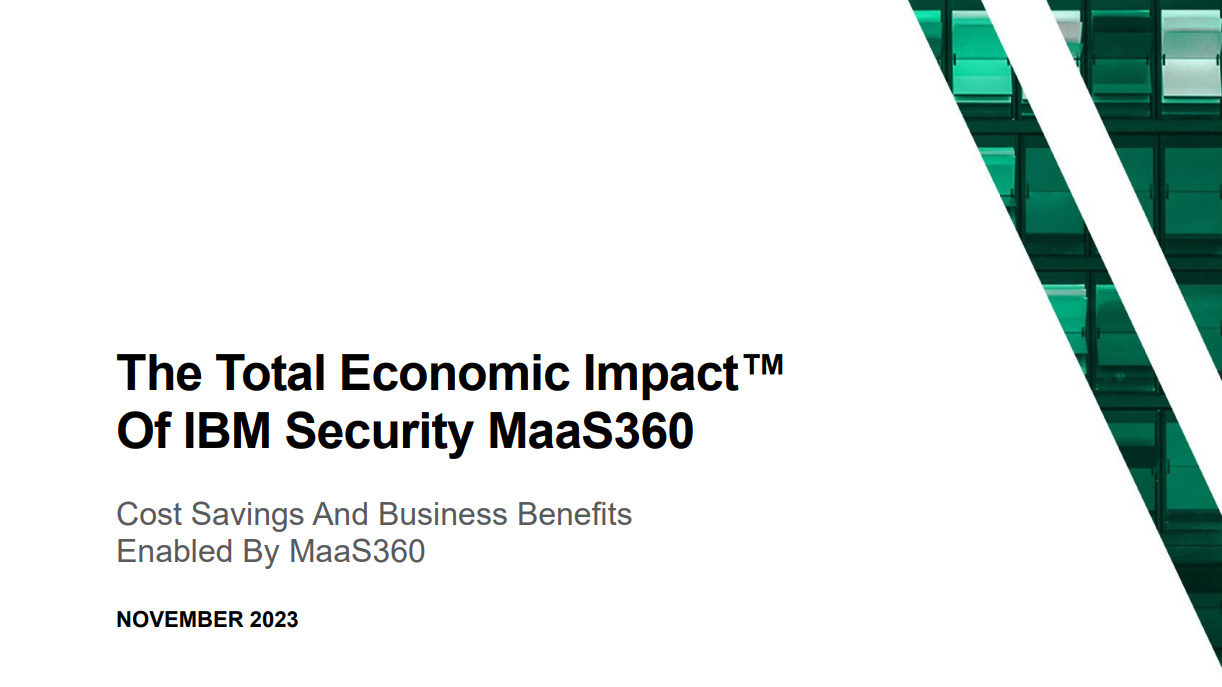 The Total Economic Impact™ of IBM Security MaaS360 with Watson
The Total Economic Impact™ of IBM Security MaaS360 with WatsonWhitepaper Cost savings and business benefits enabled by MaaS360
-
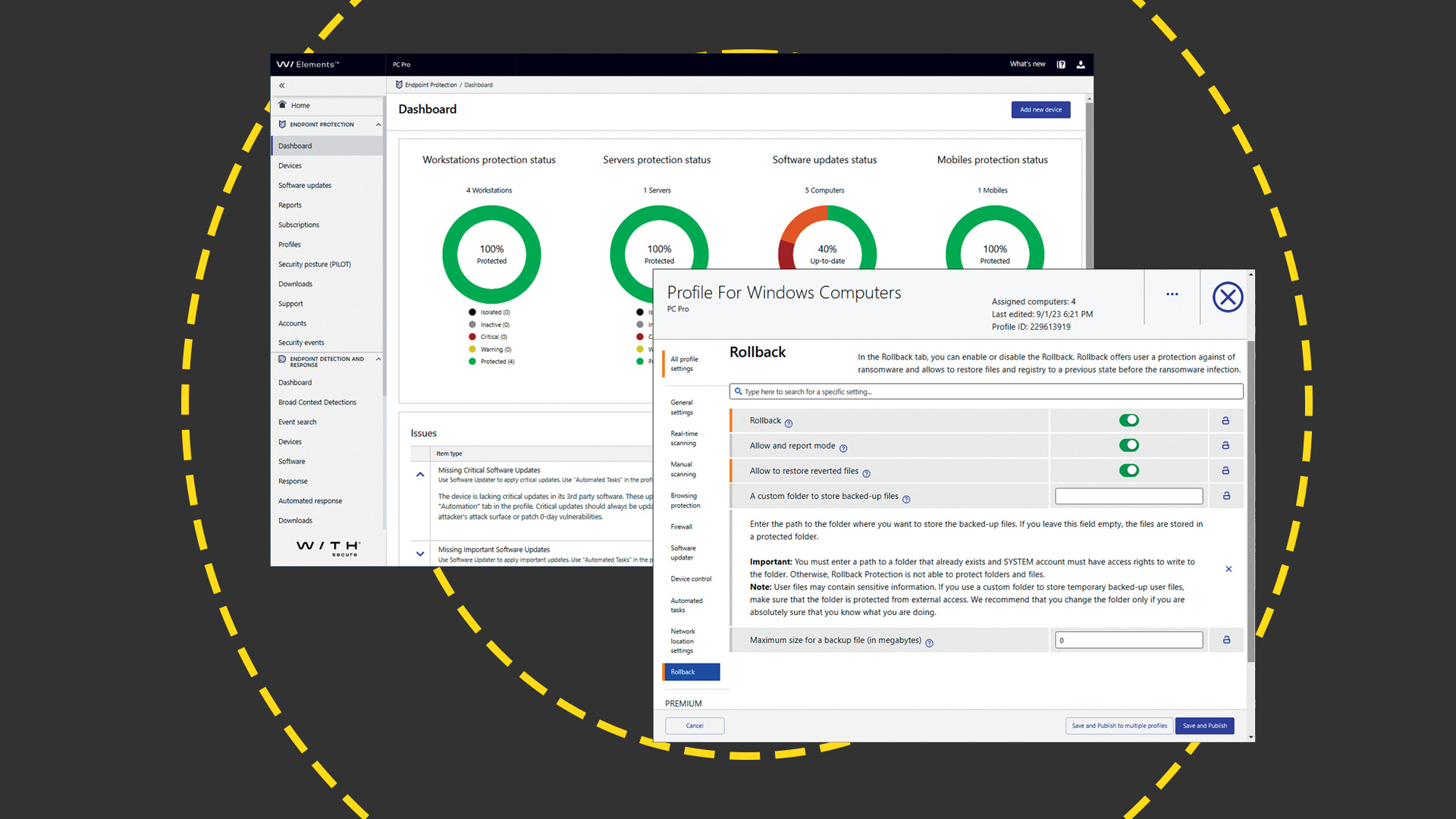 WithSecure Elements EPP and EDR review: Endpoint protection on a plate
WithSecure Elements EPP and EDR review: Endpoint protection on a plateReviews An affordable cloud-managed solution with smart automated remediation services
-
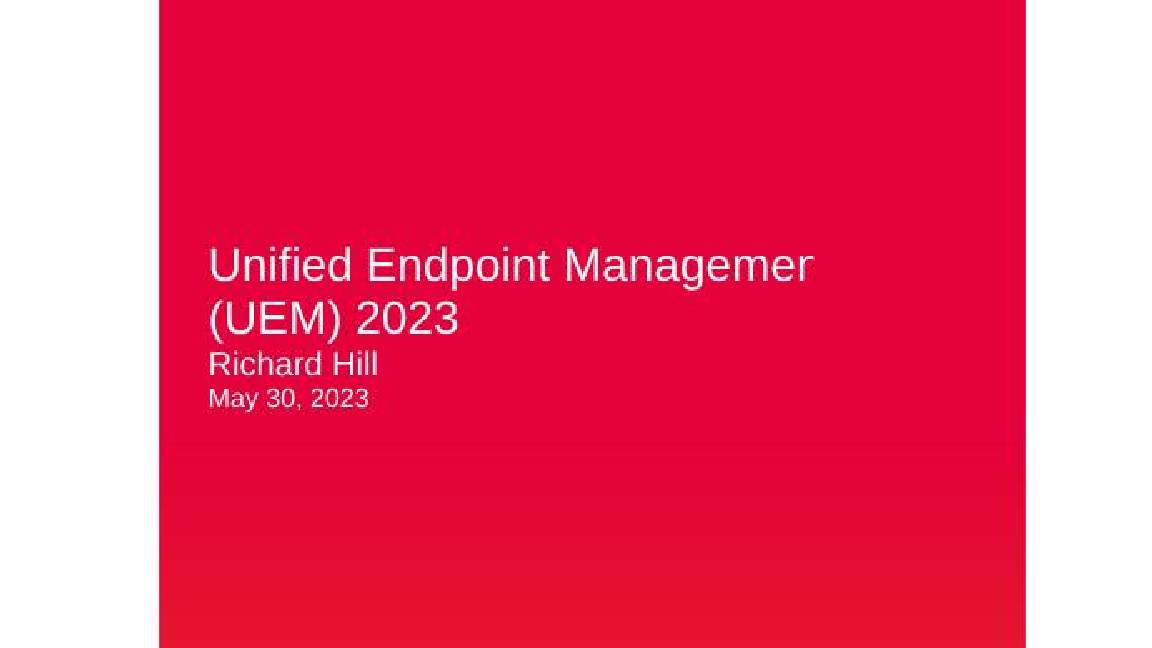 KuppingerCole leadership compass report - Unified endpoint management (UEM) 2023
KuppingerCole leadership compass report - Unified endpoint management (UEM) 2023Whitepaper Get an updated overview of vendors and their product offerings in the UEM market.
